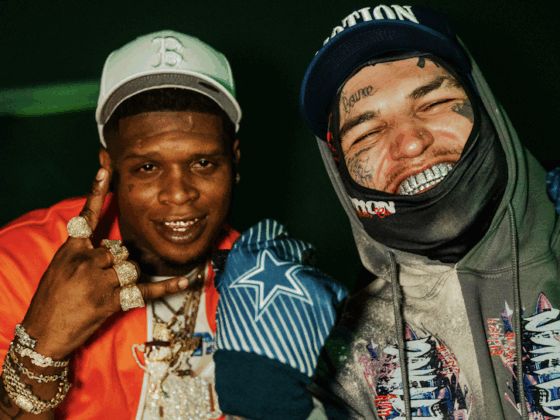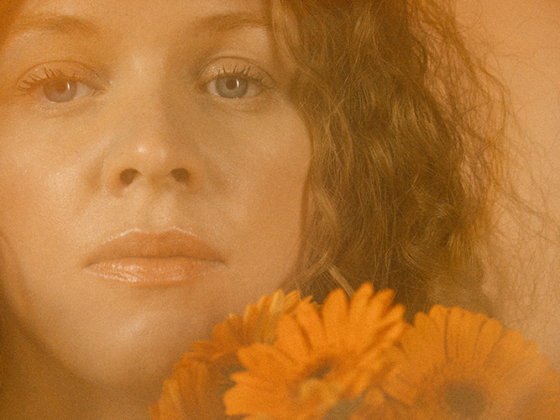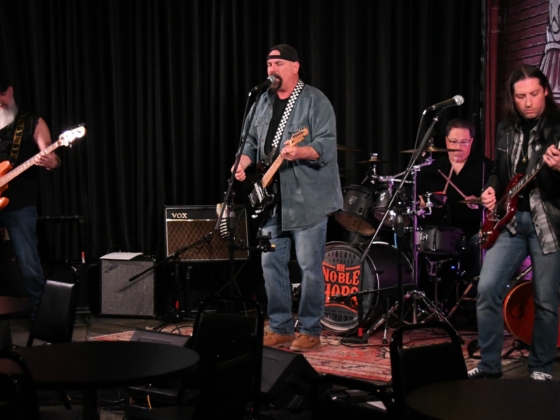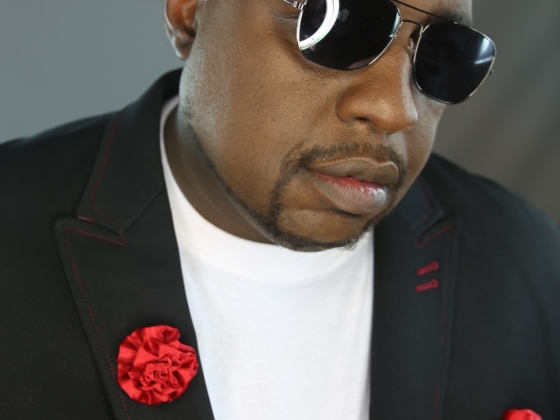It is the start of summer and we are ready for beach time, pool parties and hot summer barbeques! In celebration, check out a delicious mix of new releases, perfect for that summer playlist. From genres ranging from alternative pop, R&B, electronic pop, nu-disco, experimental rock, and more, there are so many enjoyable releases from these artists to watch.
"You" by Evenson
Evenson is a pop meets R&B riser whose delicious musical mix entices with every note. The artist is quickly making a name for himself with his creative releases and dynamic live performances. His latest effort is the single and music video "You". The song is a psychedelic neo-soul musical envelopment complete with unique soul-baring yet affected vocals over colliding beats and vibrant synths. Evenson sings about yearning, desire and connection, showing the narrative of unrequited love like never before.
The artist has millions of streams and a dedicated fan base around the world. Check out his new single "You" now and get excited for more music on the horizon. Also get a ticket for one of Evenson's upcoming summer tour dates.
"Lucy" by J Appiah
East London genre-defyer J Appiah is garnering attention for his intoxicating musical releases and his touching live performances. Fresh off of a sold out tour with the acclaimed Michael Kiwanuaka, J Appiah has shared his latest single "Lucy". The irresistible single is a contemplation on temptation, inspired by his father's choices to leave and not look back. The track takes on a deeper meaning as well, exploring masculinity and the perils of the different pressures from society on men face. He shares, "At its core, it’s a song about the lure of life and the silent battles we fight within ourselves.” Musically, "Lucy" features downtempo seductive beats, lush acoustic guitars and J Appiah's mesmerizing vocal hue. The anthemic chorus is sing-a-long worthy and cathartic, making for a must listen.
J Appiah is set to release his highly anticipated EP That’s the Thing About Time, Part 2 this summer. Inspired by life lessons and his Ghanaian roots as well as Ghanaian art and culture, J Appiah's shares captivating music.
"Tired of Being Tough" by JJ & The Mood
Cincinnati, Ohio based alt-disco meets pop act JJ & The Mood has unleashed their new single "Tired of Being Tough", a contemplation of their personal journey with letting go of toxic masculinity. Jack Sjogren sings, "I'm tired of being tough / I'm not with being the shinny unemotional machine / I am learning to unlearn the things I thought protected me," showing this important narrative in a fun way. The track is a radiant, retro-futuristic triumph filled with bouncy beats, joyful percussion and funk-fueled bass. The pop- laden hook is catchy and playful, adding to the song's allure.
JJ & The Mood is gaining recognition with their music being featured on a global iPhone ad campaign as well as a popular Uber commercial. The music is shimmery, refreshingly modern, and enjoyable. With more music to come, we can't wait to hear what is next from these innovators.
"Lightning" by Naomi Jane
Naomi Jane is an unstoppable artist whose bold music has made her a breakout artist to watch. Releasing six singles leading up to her most ambitious work to date, the highly awaited debut album Dissonance, Naomi Jane is becoming a critical and commercial success darling. Her latest release "Lightning" is a soul pop embrace with an arena-worthy chorus and passionate vocals. Naomi Jane sings about a relationship that ended and the emotional upheaval that ensued. Lyrics showing this include, "You were gone faster than lightning / Can’t even blame the bad timing / Made me believe that you loved me / Then leave me without even trying." The music video is a mini movie filled with suspense and intrigue.
Naomi Jane is set to make summer her biggest time yet. With a plethora of stunning musical releases to come, fans should follow the artist on socials for the full journey.
"SELF LOVE" by Lauren Ruth Ward
Lauren Ruth Ward blends indie rock with glam folk and psychedelic pop for a sound all her own. Known for her electrifying live performances, the artist is set to embark on a very unique tour this Fall, playing in intimate spaces throughout the country hosted by fans. This June, the musician also promises a single release that is all about awakening, befriending one's past and turning inward for healing.
Lauren Ruth Ward has recently found success with her EP Self Electric and single "SELF LOVE". The track is a raw and unapologetically bold listen blending 70s glam inspired rhythms with gritty garage rock, and searing modern soul. Crunchy basslines, intoxicating vocals and colliding guitars entice. In a world full of overproduced indie pop and too-safe rock, Lauren Ruth Ward’s music stands out like a lipstick-stained cigarette in a field of white roses.
"I Quit for Summer" by LACES
Queer musical mastermind LACES has just created a sun-drenched and glittery joyful alternative pop banger. Entitled "I Quit for Summer", this highly relatable song is all about the fantasy of leaving a dreadful, boring and soul-sucking job. In a society filled with burnout, uncertainty and monotony, "I Quit for Summer" is the ultimate sonic escape. She sings, "Living for the weekend ain't living at all/ I’ll dip (I’ll dip) / I’ll dip (I’ll dip) / For summer," showing this narrative. Musically, the track features sky high synths, hooky melodies and swirling rhythms, walking the line between retro cool and futuristic pop. The song is off of her eagerly awaited EP Work set for release June 27th.
LACES is the alt pop musical project of Jessica Vaughn, a multidimensional musical success whose releases have been featured in such TV shows as Grey's Anatomy, Lucifer, Found and more. With more fearless music to come, we are excited to hear LACES' next sonic gem.
"i'm a kid" by Phoebe Katis
UK native Phoebe Katis creates upbeat pop bliss. Her latest single is the quirky and inventive experimental pop song "i'm a kid'. The playful and humorous track is all about feeling young, nostalgic and "like a kid in a grown up body". Musically, the song is as eccentric as the meaning, with psych pop backdrops, magical basslines and charming vocals. Colliding beats and colorful rhythms also add to the song's allure. Phoebe Katis teamed up with producer Bill Wurtz for this whimsical and distinctive musical offering.
"i'm a kid" is off of Phoebe Katis’ fifth studio album due later this summer. Each track is co-produced with a different collaborator, crafting a rich and dynamic soundscape that showcases her versatility and diverse musical influences. With a unique storyteller perspective and hypnotic delivery, Phoebe Katis is an artist to watch.
"Gone" by Zosia
Zosia is a captivating Los Angeles-based singer, songwriter and producer who is known for her electronic pop releases. Her latest single is the existential new track "Gone". The song calls to life a quote by Ernest Becker on the denial of death. With the narrative of confronting and transcending fear, while embracing life with the inevitability of death, is human's ultimate way to freedom. The track produced by Zosia and James Gordon (Until the Ribbon Breaks, Mondo Cozmo), shares this emotional narrative in a synth pop meets indie electronica sonic reviere. Atmospheric synthesizers, kaleidoscope beats, and soul-baring vocals make for a compelling and thrilling listen.
Zosia hopes to inspire her listeners to "live fully and authentically by acknowledging and accepting our fear, and then take it out the driver's seat." Take a listen to "Gone" now and be inspired to confront your own fear.
"Moon Broke Quiet" by Tyler Bradley Walker featuring Tim Rutili
Tyler Bradley Walker of the popular experimental-rock meets electronic band Gone to Color has just shared his latest mood-drenched musical envelopment “Moon Broke Quiet" featuring Tim Rutili of Califone. The song is shared alongside a dark-lit cinematic music video and narrates a theme of loss and ultimate empathy. Tim sings, "Moon broke quiet / A discontinued brain," showing this narrative. Sonically, "Moon Broke Quiet" features melancholic -aced pitch black synths over hypnotic beats and deep bass. The poetic lyrics are sung in a rich and raw way, delivering an introspective and deeply evocative performance.
Tyler Bradley Walker crafts immersive soundscapes that invite repeat listens. "Moon Broke Quiet" is the latest off of his debut genre-transcending album The Sun The Moon The Earth and Me set for release June 20th, Take a listen now and get lost in the sound.
"Failure" by Scribble Scoundrel
New York City innovator, musician and rapper Scribble Scoundrel has shared the single "Failure" with producer dom shbeats. "Failure" is an otherworldly and hard-hitting electronic hip hop single all about escaping from the metaverse to destroy facism and fight for the environment. The track features static yet invigorating beats under confident rhymes and thrilling synths. The song perfectly explores the urgency and bravery needed to fight the current political madness America is facing.
Scribble Scoundrel is a unique genre-mixing artist whose music is filled with avant-garde electronic textures and rap explorations. A fearless creator and champion for the people, Scribble Scoundrel's music is now more important than ever.
"Creature" by Hidden Fortress and Plus
Hailing from Southern California, alternative R&B meets psychedelic pop mastermind Hidden Fortress has just released the new single and music video "Creature" with Plus. "Creature" is an ear-pleasing and enveloping track all about moving on emotionally from a person or event that doesn't serve you. Lyrics showing this theme include, "I can't move I'm trapped beneath her / Like the roots of a precarious creature / I wanna be more than the mistakes that I've made." Sonically, "Creature" features a seductive falsetto over seductive beats and candy-coated synths.
Hidden Fortress has a sci-fi lens to their musical releases, making for a creative and unique approach. Emerging from a realm where sound bends the boundaries of reality, each track resonates like a transmission from the core of the human spirit. More music is planned for the summer, get excited to listen!
Connect with Hidden Fortress: INSTAGRAM
Connect with Scribble Scoundrel: INSTAGRAM
Connect with Tyler Bradley Walker: INSTAGRAM
Connect with Zosia: INSTAGRAM
Connect with Phoebe Katis: INSTAGRAM
Connect with LACES: INSTAGRAM
Connect with Lauren Ruth Ward: INSTAGRAM
Connect with Naomi Jane: INSTAGRAM
Connect with JJ & The Mood: INSTAGRAM
Connect with J Appiah: INSTAGRAM
Connect with Evenson: INSTAGRAM











